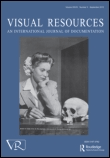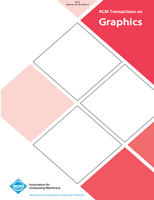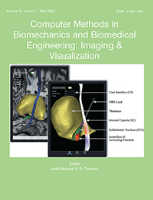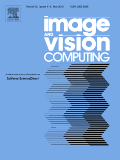
Visual Computing for Industry Biomedicine and Art
metrics 2024
Advancing Research at the Crossroads of Art and Science
Introduction
Visual Computing for Industry Biomedicine and Art, published by SPRINGER SINGAPORE PTE LTD, is an esteemed Open Access journal that has made significant contributions to its fields since its inception in 2018. With an impressive scope that intersects Computer Graphics, Computer Science, Medicine, and the Visual Arts, this journal serves as a pivotal platform for disseminating research and advancements that address contemporary challenges and innovations in visual computing. Notably, it holds a commendable standing in various Scopus rankings, achieving Q2 status in critical categories such as Computer Vision and Pattern Recognition and Visual Arts, which underscores its impact and reach within the academic community. Its promulgation of high-quality research fosters synergy between diverse disciplines, making it an invaluable resource for researchers, professionals, and students eager to engage with cutting-edge developments in both technology and the arts. The journal's commitment to accessible knowledge, evident through its Open Access offering, further enhances its role as a beacon for scholarly discourse in visual computing.
Metrics 2024
 -
- 3.20
3.20 3.80
3.80 -
-Metrics History
Rank 2024
IF (Web Of Science)
JCI (Web Of Science)
Quartile History
Similar Journals

Computational Visual Media
Connecting global minds in computational visual media.Computational Visual Media, published by TSINGHUA UNIVERSITY PRESS, is a premier open access journal dedicated to advancing the fields of Artificial Intelligence, Computer Graphics and Computer-Aided Design, and Computer Vision and Pattern Recognition. Since its inception in 2015, it has established a robust position within the academic community, consistently achieving Q1 rankings across its categories as of 2023. With exceptional Scopus rankings, including a remarkable percentile standing in the top 10% globally, the journal serves as a vital resource for researchers, professionals, and students eager to explore cutting-edge methodologies and technologies in computational visual media. The journal’s open access format enhances accessibility, fostering global collaboration and dissemination of knowledge, making it an indispensable platform for those at the forefront of innovation in these dynamic fields. The journal is headquartered in Beijing, China, and aims to publish high-quality research that not only contributes to theoretical advancements but also addresses practical challenges within computational visual technologies.

Visual Resources
Cultivating Critical Dialogues in Visual ResourcesVisual Resources, an esteemed journal published by Routledge Journals, Taylor & Francis Ltd, serves as a vital platform for scholarly research in the fields of Museology and Visual Arts and Performing Arts. With an ISSN of 0197-3762 and an E-ISSN of 1477-2809, this journal has navigated the academic landscape since its inception in 1980, continuing to amplify critical dialogues up to 2024. Positioning itself within category quartiles as Q3 for both museology and visual arts, the journal ranks at #302/667 in the Visual Arts and Performing Arts category and #41/83 in Museology according to Scopus, reflecting a significant yet competitive standing. Although not designated as Open Access, the publication remains accessible through institutional subscriptions, catering to a diverse audience of researchers, professionals, and students. By disseminating pioneering research and innovative methodologies pertinent to visual culture and museum practices, Visual Resources plays an indispensable role in advancing knowledge in its disciplines and connects academia with contemporary practice.

INTERNATIONAL JOURNAL OF COMPUTER VISION
Leading the Charge in Computer Vision Excellence.INTERNATIONAL JOURNAL OF COMPUTER VISION, published by Springer, is a premier peer-reviewed journal that stands at the forefront of the fields of Computer Vision and Artificial Intelligence. With a remarkable impact factor and rankings placing it in the Q1 category across key areas such as Computer Vision and Pattern Recognition, as well as Software, this journal serves as an essential resource for researchers, professionals, and students alike. Since its inception in 1987, it has aimed to advance the understanding and methodologies within the rapidly evolving landscape of computer vision technologies. Its location in the Netherlands underlines its international significance, and with Scopus rankings placing it in the top percentiles of its categories, the journal is recognized for its contribution to groundbreaking research and innovative applications. Although it is not an open-access journal, it still provides extensive access options through institutional and personal subscriptions, offering its readers in-depth insights and findings pivotal to their work in artificial intelligence and computational technologies.

VISUAL COMPUTER
Bridging Disciplines in Visual Computing ExcellenceVISUAL COMPUTER is a prestigious journal published by Springer, focusing on the dynamic fields of computer graphics, computer-aided design, computer vision, and software. Established in 1985, this interdisciplinary journal serves as a vital platform for sharing innovative research, applications, and developments crucial to the advancement of visual computing technologies. With a notable Q2 ranking in various categories, including Computer Graphics and Computer-Aided Design, and Computer Vision and Pattern Recognition, VISUAL COMPUTER demonstrates a solid impact within the academic community, marked by its Scopus rankings that reflect its significant contributions to the field. While the journal does not offer open access, it remains a reliable source of high-quality content for researchers, professionals, and students eager to stay abreast of emerging trends and techniques, ultimately fostering collaboration and knowledge exchange within the rapidly evolving landscape of visual computing.

ACM TRANSACTIONS ON GRAPHICS
Pioneering Research in Visual ComputingACM Transactions on Graphics, a premier journal published by the Association for Computing Machinery, stands at the forefront of research in the field of computer graphics and computer-aided design. With its ISSN 0730-0301 and E-ISSN 1557-7368, this highly respected publication has maintained a stellar reputation since its inception in 1982, showcasing groundbreaking work that spans the latest innovations and applications in graphics technology. Ranked within the top tier (Q1) of its category in 2023 and occupying the 5th position out of 106 in the Scopus rankings, this journal holds a significant impact factor, reflecting its critical role in advancing knowledge and fostering collaboration among researchers, professionals, and students alike. Although it does not offer open access options, the journal provides a diverse array of scholarly articles aimed at delineating theoretical advances, practical techniques, and emerging trends within the discipline, ensuring that its readership remains at the cutting edge of the evolving landscape of digital graphics.

Artnodes
Advancing Knowledge in Arts, Humanities, and BeyondArtnodes is a prominent academic journal published by UNIV OBERTA CATALUNYA, making significant contributions to the interdisciplinary fields of Arts and Humanities, Cultural Studies, and Computer Science. With an ISSN of 1695-5951 and an E-ISSN of 1695-5951, this Open Access journal has been accessible to the global community since 2002, encouraging the dissemination of innovative research and artistic exploration. Distributed from its headquarters in Barcelona, Spain, Artnodes has established itself as a vital resource, particularly in the domains categorized under Visual Arts, Performing Arts, and Literature, boasting a Q1 ranking in several areas for 2023. The journal is also noted for its impact in computer graphics and design, highlighting the integration of technology and art. With an impressive Scopus rank of #134 in Visual Arts and Performing Arts, this journal remains a critical forum for scholars and practitioners alike, facilitating dialogue and advancing knowledge across disciplines.

ADCAIJ-Advances in Distributed Computing and Artificial Intelligence Journal
Connecting Minds in Distributed Computing and AIADCAIJ - Advances in Distributed Computing and Artificial Intelligence Journal, published by EDICIONES UNIV SALAMANCA, is an esteemed academic journal dedicated to the rapidly evolving fields of artificial intelligence, computer networks, and distributed computing. With its commitment to Open Access since 2012, the journal ensures that cutting-edge research is accessible to a global audience, fostering collaboration and innovation in the scientific community. Based in Spain, ADCAIJ is making significant strides with its current status in the Q3 quartile across various domains, including Artificial Intelligence and Information Systems. Despite its emerging status, it ranks with great potential, providing a platform for researchers to share their findings and contribute to advancements in these critical areas. The journal not only facilitates knowledge dissemination but also encourages interdisciplinary approaches that are crucial for tackling contemporary challenges. As it continues to expand its influence from 2019 through 2024, ADCAIJ is poised to play a key role in shaping future research trajectories and technological applications in its field.

Computer Methods in Biomechanics and Biomedical Engineering-Imaging and Visualization
Advancing Imaging Techniques for Biomedical BreakthroughsComputer Methods in Biomechanics and Biomedical Engineering - Imaging and Visualization is a prominent academic journal published by Taylor & Francis Ltd, dedicated to the intersection of computational methods and biomedical engineering. With an ISSN of 2168-1163 and an E-ISSN of 2168-1171, the journal has become a crucial resource for researchers and professionals exploring innovative imaging and visualization techniques in healthcare. Covering a broad spectrum of topics, it aims to facilitate the advancement of knowledge in areas such as biomechanics, computational mechanics, and medical imaging. Holding a strong position in various Scopus rankings, including Q2 in Computational Mechanics, it offers valuable insights that foster interdisciplinary collaboration. Although it is not an open-access journal, researchers can access its rich repository of knowledge, which is instrumental in shaping future advancements in biomedical applications. The journal’s commitment to quality and relevance ensures that it remains an authoritative source for emerging trends and methodologies within the field, serving as a vital tool for academia and industry practitioners alike.

Visual Informatics
Innovating Interfaces, Transforming ExperiencesVisual Informatics is a premier academic journal published by Elsevier, dedicated to advancing the fields of computer graphics, computer-aided design, and human-computer interaction. Since its launch in 2017, this Open Access journal has swiftly established itself as a leading platform for innovative research, reflected in its impressive impact factor and robust rankings in various Scopus categories. In 2023, it proudly holds positions in the top quartile (Q1) for Computer Graphics and Computer-Aided Design, Human-Computer Interaction, and Software, showcasing its influential contributions to these dynamic fields. Based in Amsterdam, Netherlands, Visual Informatics encourages the dissemination of high-quality, peer-reviewed articles that explore the intersection of visual technology and user experience, serving as an invaluable resource for researchers, professionals, and students seeking to stay at the forefront of these evolving disciplines.

IMAGE AND VISION COMPUTING
Driving innovation in the realm of visual technology.Image and Vision Computing, published by Elsevier, serves as a leading international journal focused on the dynamic fields of computer vision, pattern recognition, and signal processing. With its esteemed Q1 category rankings in these areas and an impressive standing in Scopus metrics, where it ranks 19th in Computer Vision and 23rd in Signal Processing, this journal has firmly positioned itself at the forefront of academic research and innovation. Established in 1983, it continues to publish cutting-edge research that drives advancements in technology and applications across various domains. The journal is committed to disseminating high-quality, peer-reviewed articles that address significant challenges and propose novel solutions, making it an essential resource for researchers, practitioners, and students alike. While not an open access journal, Image and Vision Computing offers a wealth of valuable insights into the ever-evolving landscape of visual computing technologies.